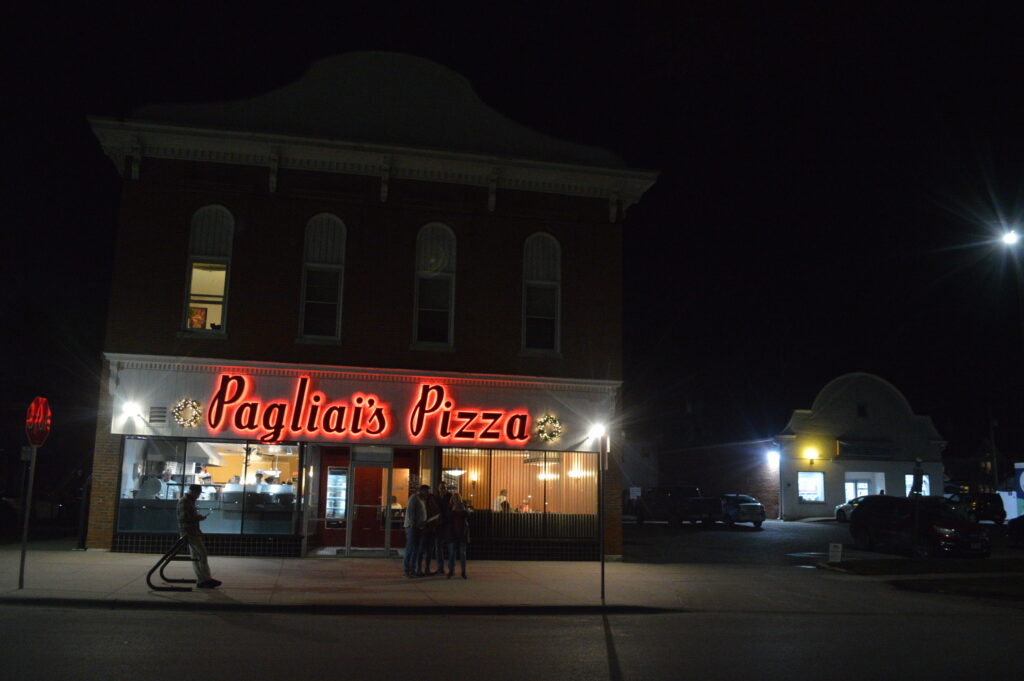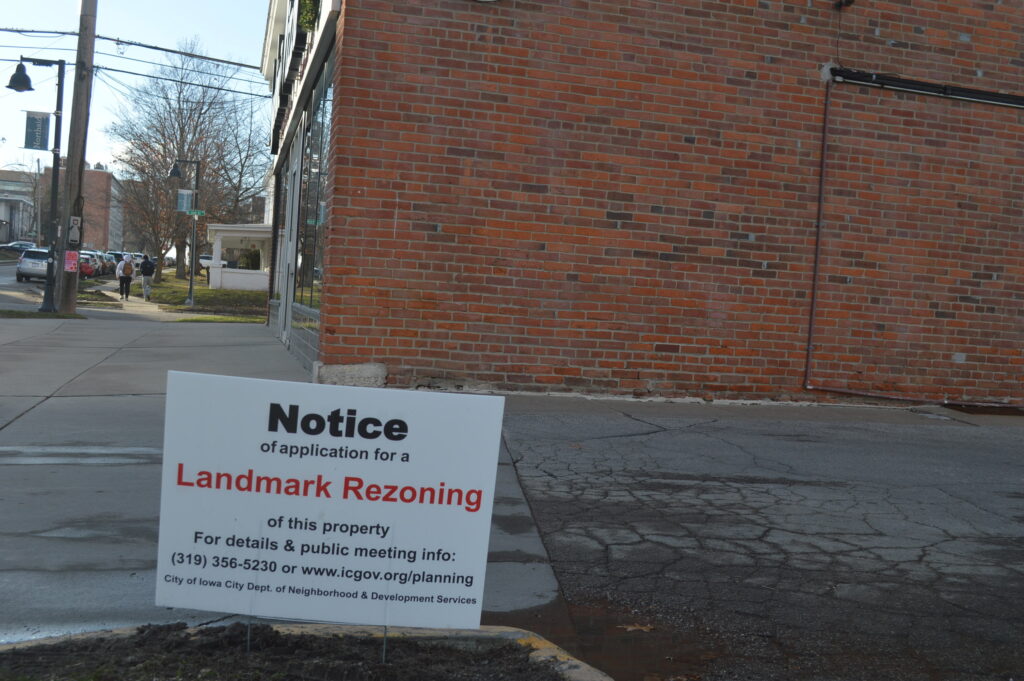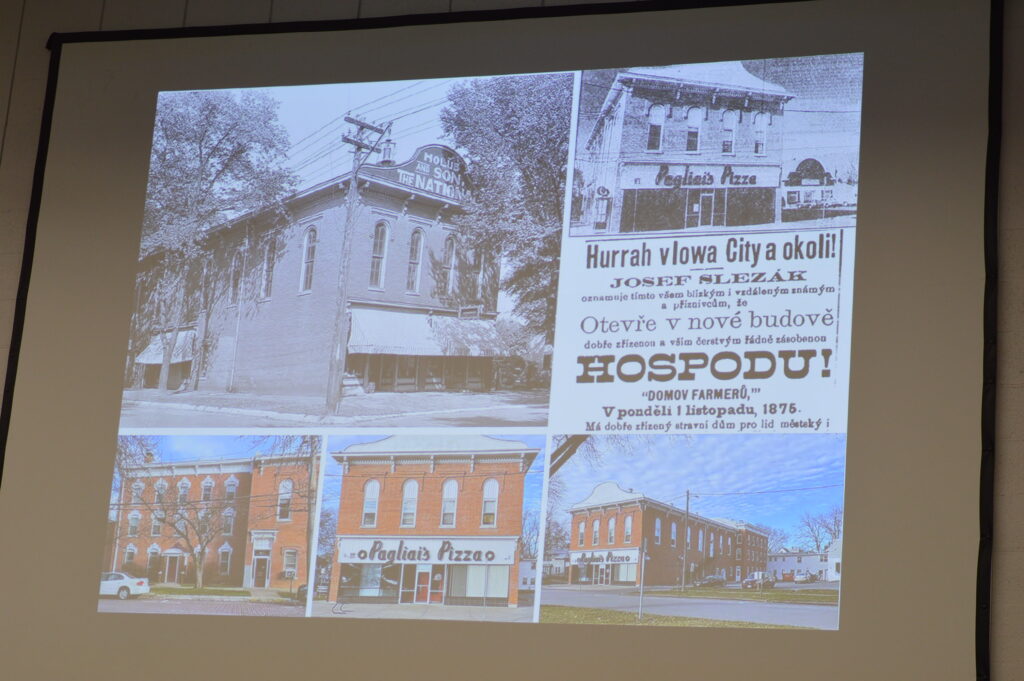
IOWA CITY, Iowa — Iowa City Mayor Bruce Teague was the lone vote against rezoning property — best known as the Pagliai’s Pizza building — as a local historic landmark.
“There are some things that I think are high risk,” Teague said at the May 7, 2024, City Council meeting. “And the city may be put in a position to be sued, so I don’t want to do that.”
Even without the mayor’s support, the measure passed 6-1, just squeaking by with the super-majority required after fifth-generation owner Gary Skarda opposed the historic designation for his property at 302-316 E. Bloomington St.
A third and final reading is still needed at the next City Council meeting.
Last year, Skarda listed the building for sale for $5 million, including 16 apartments, the portion where Pagliai’s is located and neighboring laundromat, located in a former stable, built for Bohemian immigrant farmers and others traveling to Iowa City in its early days.
Skarda has said he hopes to sell the property to allow condominiums to be built on the site, but supporters of the historic designation have cited the building’s value in retaining the city’s character and in attracting investment to the Northside neighborhood.

A sign outside of Pagliai’s Pizza notes the potential rezoning as a local historic landmark. (photo/Cindy Hadish)
Jordan Sellergren, chairwoman of the city’s Historic Preservation Commission, said she feels good about the upcoming vote.
“All six councilors who voted in favor did so enthusiastically,” Sellergren noted. “The city being sued did seem to be Mayor Teague’s primary concern. But in 1978, the Supreme Court ruled that historic preservation is a valid public purpose, and landmarking does not constitute a ‘taking’ since restrictions do not prevent an economic use of property.”
Sellergren said she would be reaching out to Teague to alleviate his concern, as well as to Mayor Pro Tem Mazahir Salih, who voted in favor of the rezoning, with some reservations.
Salih raised concerns that the historic designation would impose financial hardships on Skarda and asked the rest of the City Council to consider offering a line-item in the budget to assist in the upkeep of historic buildings.
Sellergren said she agreed with Salih.
“We can and should be providing more resources to property owners so that we can keep our historic buildings standing and in good shape,” she said after the meeting.
Council member Andrew Dunn noted that historic tax credits, grants and other financial incentives are offered to owners of historic properties, but Skarda does not have access to those because his property doesn’t have a historic designation.
Teague, who previously voted in favor of the measure, cited an outpouring of emails and comments about the rezoning, saying the issue has garnered the most attention of any in front of the City Council this year.
Read more: City Council gives tepid approval to local landmark designation

Some of the history of the Pagliai’s Building is detailed during a previous Iowa City Council meeting.
Two people spoke in favor of the historic designation, with one opposed at Tuesday’s meeting, while dozens of residents have spoken at previous meetings in front of commissioners and the City Council.
Cecilia Rokusek, president and CEO of the National Czech & Slovak Museum & Library in Cedar Rapids, sent a letter in favor of the historic designation.
“We believe that history and culture should not be confined to museums, but should be a living and breathing part of our communities,” Rokusek wrote, noting that the building has statewide, if not national significance in the history of Czech-American culture.
Known formally as the Slezak-Holub-Skarda Building, the site, built between 1875 to 1880, is often referred to as Pagliai’s Pizza, which has leased space on the ground floor of the brick Italianate building since 1969.
Originally called Národní Síň, or National Hall, Czech cultural and fraternal organizations, such as ZCBJ, used the upper level for dances and other social gatherings. Original owner Joseph Slezak constructed the building to reflect his immigrant roots in Bohemia, later part of the Czech Republic. His son-in-law, Joseph Holub, was the second owner, and the Holub Apartments still exist in the building.
Anthony Fontanini, who owns Pagliai’s Pizza, has said the business has a lease through September 2030, and plans on staying open through that time.
Read more: 90-year-old Pagliai’s Pizza founder reminisces about restaurant


[…] Story continues […]